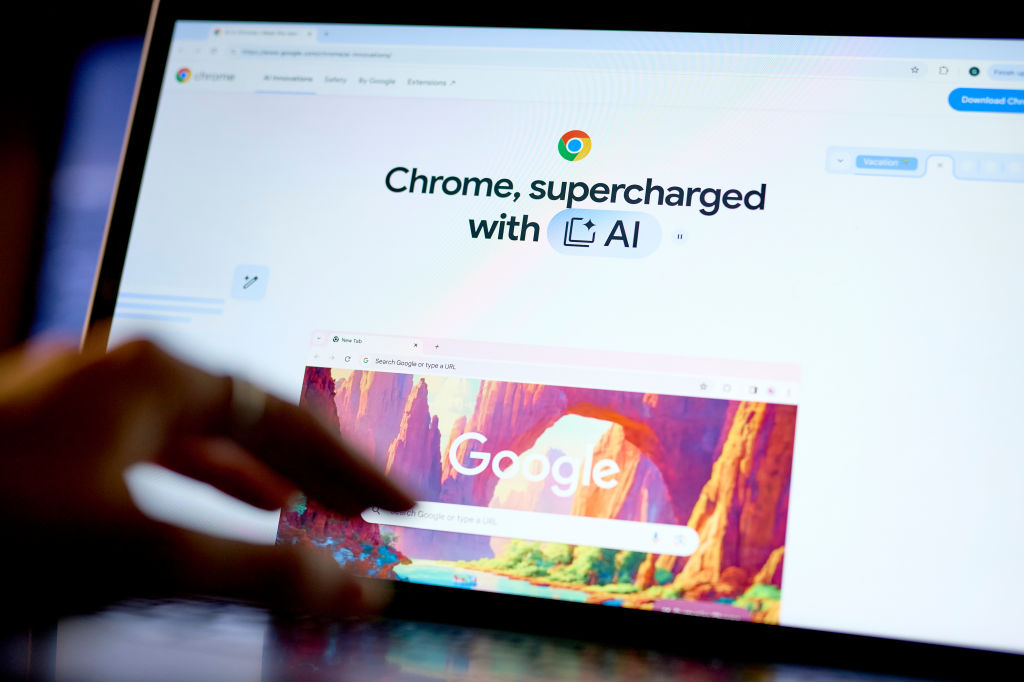
The digital landscape is undergoing a profound transformation, with artificial intelligence increasingly shaping how users interact with the internet. This shift was underscored by OpenAI’s recent introduction of ChatGPT Atlas, an AI-powered web browser, which immediately sparked widespread discussion about the future of online navigation. While the launch of a new browser might seem like a familiar occurrence in the tech world, the integration of advanced AI capabilities presents a paradigm shift, prompting technologists and users alike to consider whether traditional browsing methods are poised for obsolescence. The emergence of such tools invites a critical examination of their utility, potential impact on user habits, and the broader implications for the fabric of the open web.
A New Front in the Browser Wars
The concept of a "browser war" is not new to the internet’s history. The initial skirmishes of the 1990s saw Netscape Navigator battling Microsoft’s Internet Explorer for dominance, fundamentally shaping early web standards and user experiences. A second wave emerged in the late 2000s and 2010s with Google Chrome’s meteoric rise, challenging the established positions of Firefox and Apple’s Safari. These conflicts were largely centered on speed, features, and platform integration. However, the current evolution, spearheaded by AI-centric offerings, signals a new kind of competition. Instead of merely rendering web pages more efficiently, these new entrants promise to actively mediate and automate online tasks, fundamentally altering the relationship between user, browser, and information.
Historically, many companies have attempted to carve out a niche in the highly competitive browser market, often failing to dislodge incumbents like Chrome, Safari, and Firefox. A primary challenge has been the difficulty in establishing a sustainable business model for a standalone browser product, which is typically offered for free. Revenue generation often relies on search engine partnerships, which are already dominated by giants like Google. This economic reality has proven to be a formidable barrier for most challengers. OpenAI, however, appears to operate under different financial constraints. As a well-funded entity at the forefront of AI innovation, its strategic move into the browser space may not be immediately driven by direct browser monetization, allowing it to invest heavily in development and user acquisition without the immediate pressure of profitability. This financial resilience could provide OpenAI and similar AI-first companies a distinct advantage in a market historically unforgiving to those lacking deep pockets or a clear path to revenue.
The Promise of the "Agentic Web"
At the heart of the AI browser phenomenon is the vision of the "agentic web." This concept posits a future where intelligent agents, embedded within or alongside the browser, can understand user intent, navigate complex websites, synthesize information, and execute multi-step tasks autonomously. Instead of a user manually clicking through pages, filling out forms, or comparing product details, the AI agent would handle these processes on their behalf. Proponents suggest this could unlock unprecedented levels of efficiency, freeing users from repetitive digital labor and allowing them to focus on higher-level decision-making. Imagine instructing your browser to "plan a weekend trip to a specific city, find flights and hotels within a budget, and suggest local activities," all executed by an AI agent that interacts with various travel and booking sites. This theoretical future, where the browser becomes a proactive digital assistant, is what many developers in the AI space are striving to build.
Navigating Practicality and Perceptions
Despite the grand vision, the practical application of early AI-powered browsers presents a mixed bag. Initial user experiences with platforms like ChatGPT Atlas and others suggest that while there can be a "slight efficiency gain," the reality often falls short of the futuristic ideal. Users might find themselves observing an AI agent "clicking around on a website," a process that can feel slow, opaque, and sometimes less intuitive than performing the task manually. This visual representation of automation can detract from the feeling of seamless efficiency, leading to questions about the true value proposition for the average user. Tasks that seem simple in theory, such as having an agent look up a recipe and add all ingredients to an online grocery cart, might not resonate with everyone’s daily habits or priorities. The disconnect between a developer’s idealized use case and actual consumer needs highlights a critical challenge: ensuring AI tools solve genuine problems in ways that are demonstrably superior to existing methods, rather than merely offering novelty. For many, the current generation of AI browsers still requires a leap of faith that the "agent" will understand their nuanced needs and execute tasks flawlessly, which is not always the case.
Economic Realities and Strategic Plays
The economic landscape surrounding AI browsers is complex. As previously noted, traditional browsers struggle with monetization. However, for companies like OpenAI, the strategic impetus may lie elsewhere. Their objective might be to establish a dominant interface for AI interaction, positioning themselves as the gateway to the next generation of computing. By controlling the browser, they could potentially influence how users access information, consume content, and engage with AI services, thereby gathering invaluable data for further model refinement and securing a strategic advantage in the broader AI ecosystem. This approach shifts the focus from direct browser revenue to leveraging the browser as a critical touchpoint in a larger AI-driven business strategy. This could involve premium AI features, integration with other paid services, or even subtle data monetization, albeit with strict privacy considerations. The sheer scale of funding rounds for companies like OpenAI suggests a long-term play, where immediate profitability of the browser itself is secondary to securing a foundational position in the evolving digital infrastructure.
Rethinking the Open Web and User Control
The rise of AI browsers also brings forth significant questions about the future of the "open web." For decades, the internet has thrived on the principle of direct access to diverse websites and content creators. Users navigate independently, choosing which sites to visit and how to engage with them. AI-driven interfaces, particularly those that synthesize information or perform tasks without direct user navigation, could fundamentally alter this dynamic. If AI agents become the primary intermediary, presenting curated summaries or executing actions without exposing the underlying websites, the direct relationship between users and content providers could diminish. This raises concerns about content attribution, the visibility of smaller websites, and the potential for a more centralized, AI-filtered internet experience. Anthony Ha, a prominent voice in tech commentary, articulates this concern, suggesting that "a website is just going to become less and less important as more and more of our browsing is controlled by these AI interfaces and chatbots." This scenario could challenge established models of content creation, advertising, and even the democratic dissemination of information, potentially leading to a web that is more "efficient" but less diverse or transparent.
Security, Privacy, and Trust in AI Agents
Beyond economic and structural concerns, the integration of AI into browsing raises critical security and privacy implications. Granting an AI agent the ability to "click around on a website" and interact with various online services inherently means granting it access to personal data, browsing history, and potentially sensitive information. The risks include vulnerabilities in the AI itself, malicious agents, or unintended data exposure through the agent’s actions. The concept of "agentic" behavior, where the AI makes decisions on the user’s behalf, also introduces questions of accountability and control. Users must trust that the AI will act in their best interest, adhere to privacy standards, and not be susceptible to exploits that could compromise their digital security. As these technologies mature, robust security protocols, transparent data handling practices, and clear ethical guidelines will be paramount to building user confidence and preventing unforeseen consequences. Without these safeguards, the promise of efficiency could be overshadowed by the specter of compromised data and eroded trust.
The Road Ahead: Evolution or Revolution?
The current landscape of AI-powered browsers represents a nascent stage in what could be a profound evolution of our digital interactions. While early iterations might offer only marginal gains and face challenges in proving their indispensable value to a broad audience, the underlying technological trajectory is undeniable. The ability of AI to understand natural language, automate complex workflows, and synthesize vast amounts of information holds immense potential. The question remains whether this will lead to a revolutionary overhaul of how we use the internet, or if AI capabilities will gradually integrate into existing browser frameworks as enhanced features.
For now, many users, like Sean O’Kane, who relies on precise Boolean searches and direct engagement with web pages for his work, find the traditional browsing experience more effective for their specific needs. The transition to an "agentic web" will likely be gradual, driven by clear demonstrations of superior utility and addressing user concerns around control, transparency, and security. The future of web navigation may not involve ditching established browsers entirely, but rather seeing them evolve into more intelligent, AI-augmented companions, blurring the lines between search, browsing, and personal assistance. The race is on for companies to not just build a better browser, but to redefine what a browser fundamentally does in an increasingly intelligent digital world.






